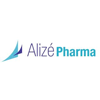Alizé Pharma launches Phase II clinical trial of AZP-531 in Prader-Willi syndrome
Posted: 2 March 2015 |
Alizé Pharma, a company specialized in the development of drugs for the treatment of metabolic disorders and rare diseases, today announces the launch of a Phase II clinical trial of AZP-531, its unacylated ghrelin analog, in patients with Prader-Willi syndrome…


Alizé Pharma, a company specialized in the development of drugs for the treatment of metabolic disorders and rare diseases, today announces the launch of a Phase II clinical trial of AZP-531, its unacylated ghrelin analog, in patients with Prader-Willi syndrome.
The trial is a randomized, double blind and placebo controlled study. It aims to evaluate the safety and effects of a two-week treatment with AZP-531 on food-related behavior and on weight in up to 40 patients with Prader-Willi syndrome. The multicenter trial will be conducted in several European countries. As of today sites are open for recruitment in France and Spain. Results are expected to be available by mid-2016.
Prader-Willi syndrome is a rare genetic metabolic syndrome, characterized by hyperphagia, an excessive eating behavior, and severe obesity. Unlike common obesity and type 2 diabetes, Prader-Willi syndrome is associated with elevated blood levels of acylated ghrelin, a hormone with strong stimulating effect on appetite.
As an unacylated ghrelin analog, AZP-531 is expected to improve hyperphagia by inhibiting the effects of increased acylated ghrelin blood levels in these patients. It is also expected to decrease weight and improve glucose control, a key additional benefit as 25% of adult Prader-Willi patients have type 2 diabetes.
“There is strong evidence for an abnormal regulation of the ghrelin system in Prader-Willi syndrome, associated with the development of severe hyperphagia and obesity that occur in these patients. AZP-531, an unacylated ghrelin analog, could constitute an attractive therapeutic approach by targeting a key underlying endocrine defect of the syndrome,” said Professor Maïthé Tauber, pediatric endocrinologist, Hospital of Toulouse, coordinator of the Reference Center for Prader-Willi in France and principal investigator of the trial.
This trial is the fourth AZP-531 clinical trial to be launched by Alizé Pharma. Two Phase I trials in healthy volunteers and obese subjects have been completed. The results indicate that AZP-531 was well tolerated, with improved glucose control and decreased weight in obese subjects over a two-week treatment period. A Phase Ib study in type 2 diabetes was initiated in 2014 with results expected in H2 2015.
“We are very pleased to announce the start of this Phase II trial of AZP-531 in Prader-Willi syndrome,” said Thierry Abribat, manager of TAB Consulting, president of Alizé Pharma. “We look forward to delivering key data in the near future on the therapeutic potential of AZP-531 from the two ongoing trials in type 2 diabetes and in Prader-Willi syndrome.”




